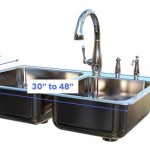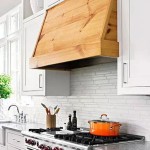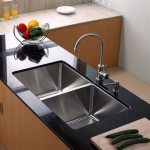Stone Tile Flooring for Kitchens: A Durable and Elegant Choice
Stone tile flooring has long been a popular choice for kitchens due to its durability, elegance, and versatility. From the classic look of marble to the rustic appeal of slate, stone tiles offer a wide range of styles and colors to suit various kitchen designs. This article will delve into the advantages and disadvantages of stone tile flooring for kitchens, explore different types of stone tiles, and provide insights into their maintenance requirements.
Durability and Longevity
Stone tile flooring is renowned for its exceptional durability and longevity. Natural stone is inherently strong and resistant to scratches, dents, and wear and tear. With proper installation and maintenance, a stone tile floor can last for decades, making it a wise investment for homeowners. Stone tiles are also impervious to moisture, making them ideal for kitchen environments prone to spills and splashes.
Furthermore, stone tiles are heat-resistant, making them suitable for areas near ovens or stovetops. They can withstand high temperatures without warping or cracking, ensuring a safe and functional kitchen environment.
Aesthetic Versatility
Stone tile flooring offers a wide array of styles and colors to complement various kitchen designs. From the sleek and modern look of polished granite to the warm and inviting ambiance of rustic limestone, there is a stone tile for every taste. The natural veining and patterns inherent in stone tiles add unique character and visual interest to any kitchen space.
Stone tiles can be used to create a variety of patterns and layouts, adding further aesthetic appeal. They can be laid in traditional grid patterns, intricate mosaic designs, or more contemporary geometric patterns. The flexibility of stone tiles allows for the creation of custom kitchen floors that reflect the homeowner's individual style.
Maintenance Considerations
While stone tile flooring offers numerous benefits, it is essential to understand its maintenance requirements. Stone tiles require regular cleaning to remove dirt, grime, and spills. A simple sweep or vacuuming can keep the floor clean and prevent dust buildup. However, stone tiles need periodic sealing to protect them from stains and scratches. The frequency of sealing depends on the type of stone and the level of foot traffic.
Some stone tiles, such as marble, are more susceptible to etching and staining. It is crucial to take steps to minimize these issues, such as using coasters under glasses and wiping up spills immediately. Additionally, acidic cleaners should be avoided, as they can damage the stone's finish.
Types of Stone Tiles for Kitchens
Various types of stone tiles are commonly used in kitchens, each offering unique characteristics and aesthetics:
Marble
Marble is a luxurious and elegant stone known for its veining patterns and polished sheen. While it is susceptible to etching and staining, its beauty and durability make it a popular choice for kitchen floors. Marble is available in various colors and patterns, from classic white to dramatic black and gray.
Granite
Granite is a highly durable and scratch-resistant stone with a wide range of colors and patterns. It is known for its heat resistance and stain resistance, making it an excellent choice for busy kitchens. Compared to marble, granite is more porous and requires regular sealing.
Slate
Slate is a natural stone that is known for its rustic and earthy appearance. It is available in various colors, from dark gray to rich browns, and is often used to create a natural and cozy ambiance. Slate is a durable and moisture-resistant stone that is suitable for high-traffic areas.
Travertine
Travertine is a porous stone that is known for its warm and inviting appearance. It is often used in kitchens to create a classic and elegant ambiance. Travertine is relatively soft and requires regular sealing to protect it from stains.
Limestone
Limestone is a sedimentary rock that is known for its soft, warm, and earthy appearance. It is often used in kitchens to create a rustic and relaxed ambiance. Limestone is porous and requires regular sealing to protect it from staining.
Stone tiles are an excellent flooring option for kitchens, offering durability, longevity, and aesthetic versatility. With proper care and maintenance, stone tile floors can enhance the beauty and functionality of any kitchen space.

Natural Stone Tile Vs Porcelain Lookalike We Ll Help Decide

Limestone Is Proving More And Popular For A Stone Kitchen Floor

Natural Stone Flooring Keller Tx Granite Floors Marble Installation

Natural Stone Vs Porcelain Floor Tiles Artisans Of Devizes

Outdoor Tiles Garden Patio Mandarin Stone Best Flooring For Kitchen Floor Tile

Five Stunning Stone Kitchen Flooring Ideas Stamford At Home

What Is Natural Stone Flooring Types Pros Cons Cleaning

35 Stone Flooring Ideas With Pros And Cons Digsdigs

Your Floor How To Find Right Stone Tile

Eye Catching Stone Effect Tiles Floor At Low Prices








